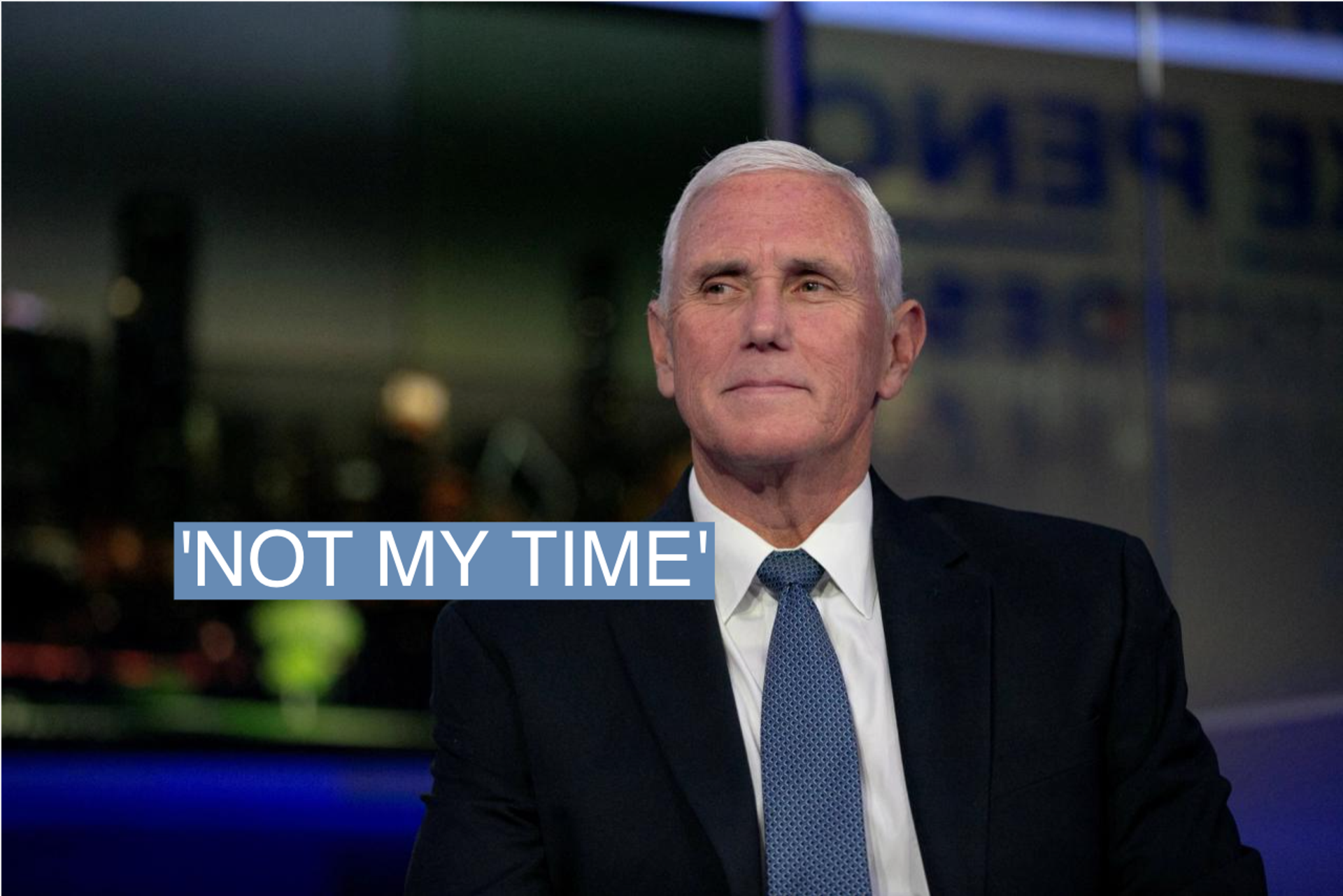The News
Former U.S. vice president Mike Pence said he was suspending his presidential campaign on Saturday. He made the announcement at the Republican Jewish Coalition in Las Vegas, to a surprised audience.
“After much prayer and deliberation, I have decided to suspend my campaign for president,” Pence told the crowd.
After touting his credentials as a pro-Israel lawmaker and slamming the “new populist movement” within the Republican party, Pence abruptly shifted his speech.
He noted that he first decided to run for president because he believes “this country is in a lot of trouble” before admitting that, over the last six months, “It’s become clear to me: This is not my time.”
Pence received a standing ovation, telling the crowd, it’s “still your time” and urged the Republican party to resist “the siren song of populism.” At the end of his unexpected news, he brought his wife on stage and thanked his supporters.
He had not yet qualified for the third GOP presidential debate and although he made it to the previous two debate stages, he had had difficulties meeting some of the qualifications.
Know More
Pence repeatedly staked out the most conservative stances in the field, challenging Trump and other GOP candidates to match him. At a June gathering of evangelical voters, he said that “every Republican candidate for president should support a ban on abortion before 15 weeks as a minimum nationwide standard,” a shot at Trump and Nikki Haley, who’ve refused to commit to any federal abortion law.
He chastened Trump for ruling out any reforms to Social Security or Medicare, calling that stance “identical to Joe Biden’s.” Weeks after announcing his bid, he traveled to Kiev and endorsed “strong American support for our Ukrainian friends and allies.” Those challenges largely went ignored by other candidates — most of whom polled ahead of Pence throughout his campaign.
His refusal to accept challenges to the 2020 election made him one of the least popular candidates for the nomination among GOP voters; the Des Moines Register/NBC News poll of Iowa, in August, found that 53% of likely caucus-goers viewed him unfavorably.
Pence’s 143-day campaign found him frequently responding to Trump, urging the party not to renominate his “former running mate” to audiences where reporters sometimes out-numbered voters.
Last month, in what his campaign billed as a major speech on “populism versus conservatism,” he warned that his party was embracing an “agenda stitched together by little else than personal grievances and performative outrage,” putting the blame on Trump and his “imitators.”
That got Pence plenty of earned media, but it didn’t move votes; as he stumped across Iowa, his support declined. According to FiveThirtyEight, Pence polled at 4.4% on the day he entered the race with a rally in the Des Moines suburbs. On Friday, Pence was polling at 2%, as the GOP voters who viewed Trump least favorably gravitated toward Haley.
